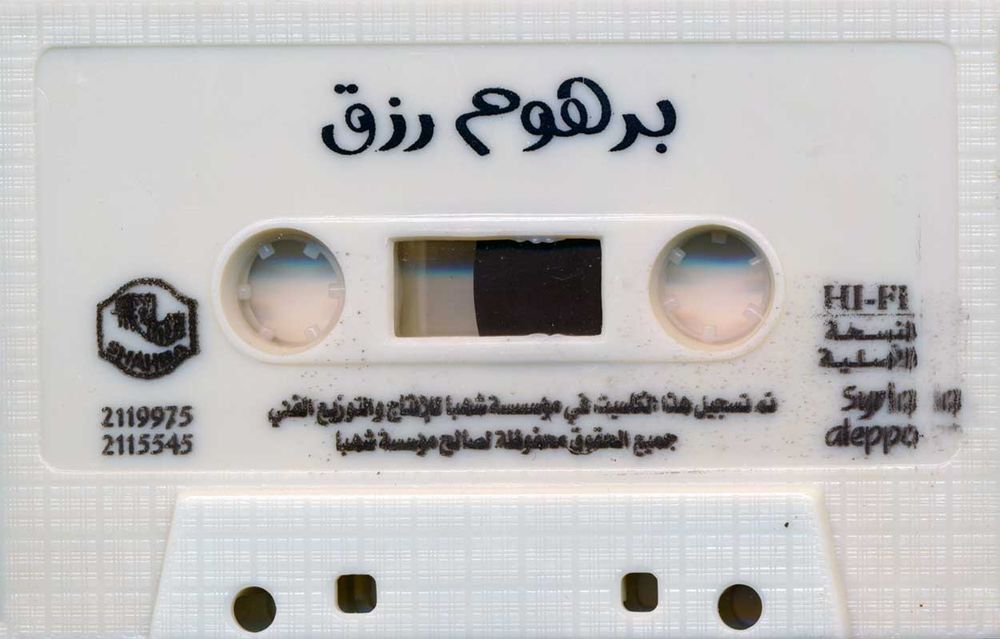


Barhoum Rizq
Sahra Ala Al Buzuq (An Evening on Buzuq)
SIDE A
- Part 1
SIDE B
- Part 2
Label
Layali Al Ghab Studio
Shahba
Location Issued
Aleppo, Syria
Hama, Syria
Artist Origin
Tartous, Syria
Credits
Buzuq player: Mohammad HammadiShahba for artistic production and distribution / Aleppo, Syria
More Info
A tarab session bringing together Tartous singer Barhoum Rizq with buzuq player Mohammed Hammadi, who handles the entire musical arrangement in this tape. Far from the maximalist and loud arrangements typically associated with Syrian shaabi music, we listen here to unhurried and minimalist singing and playing, allowing us to focus on and immerse ourselves in the details. It is customary in every opportunity available to him, that attaba singer Barhoum Rizq mentions the poet Mousa Francis, who would write attaba verses for him when Rizq didn't write them himself. He believes that the secret behind attaba's resilience as a musical style, its spread, and success lies in the lyrics. Attaba is originally a poetic form, and the skill in crafting meanings, imagery, and vocabulary is what can keep the listener engaged for long hours in each session, especially since the music accompanying attaba is simple and minimalist.